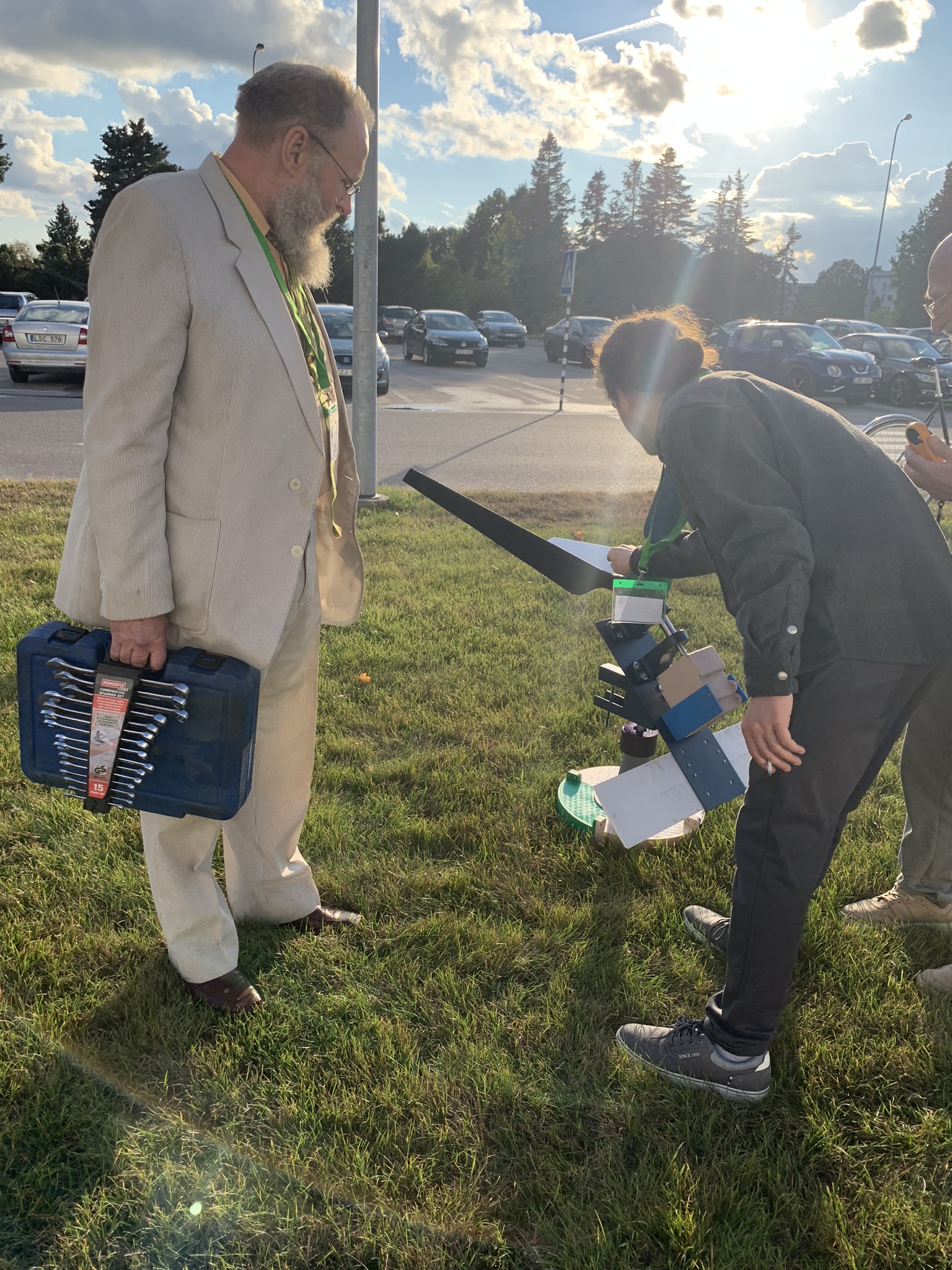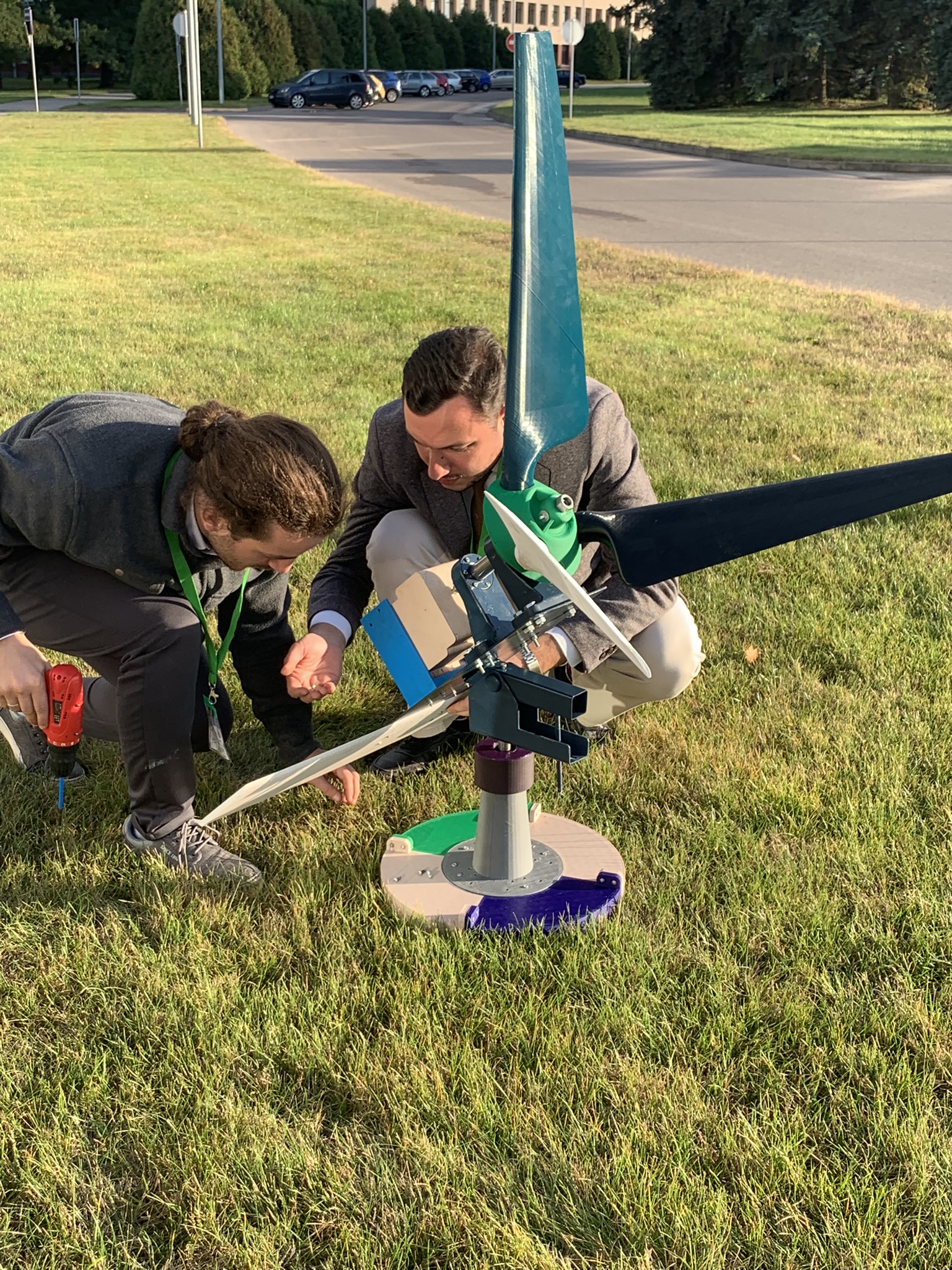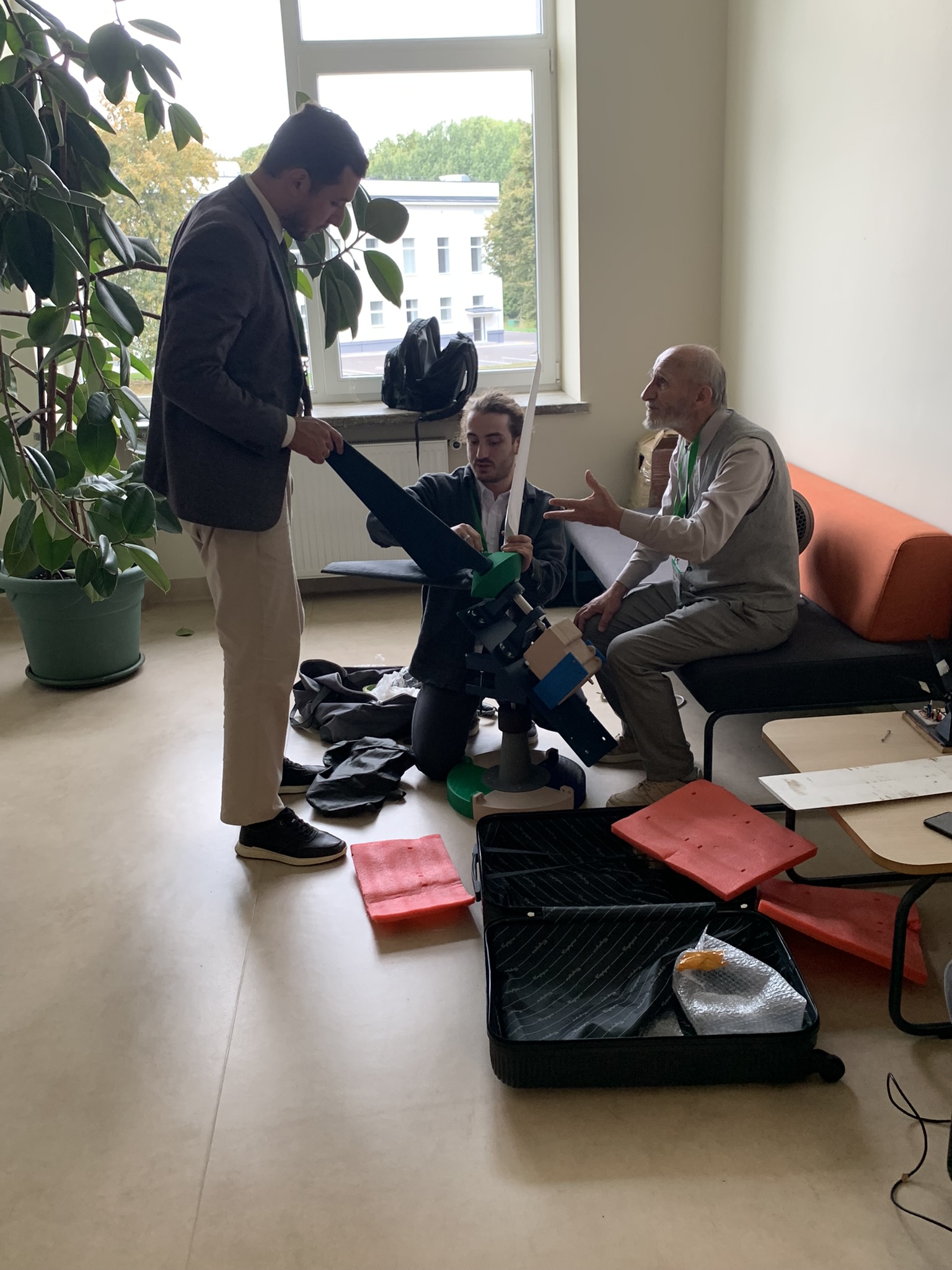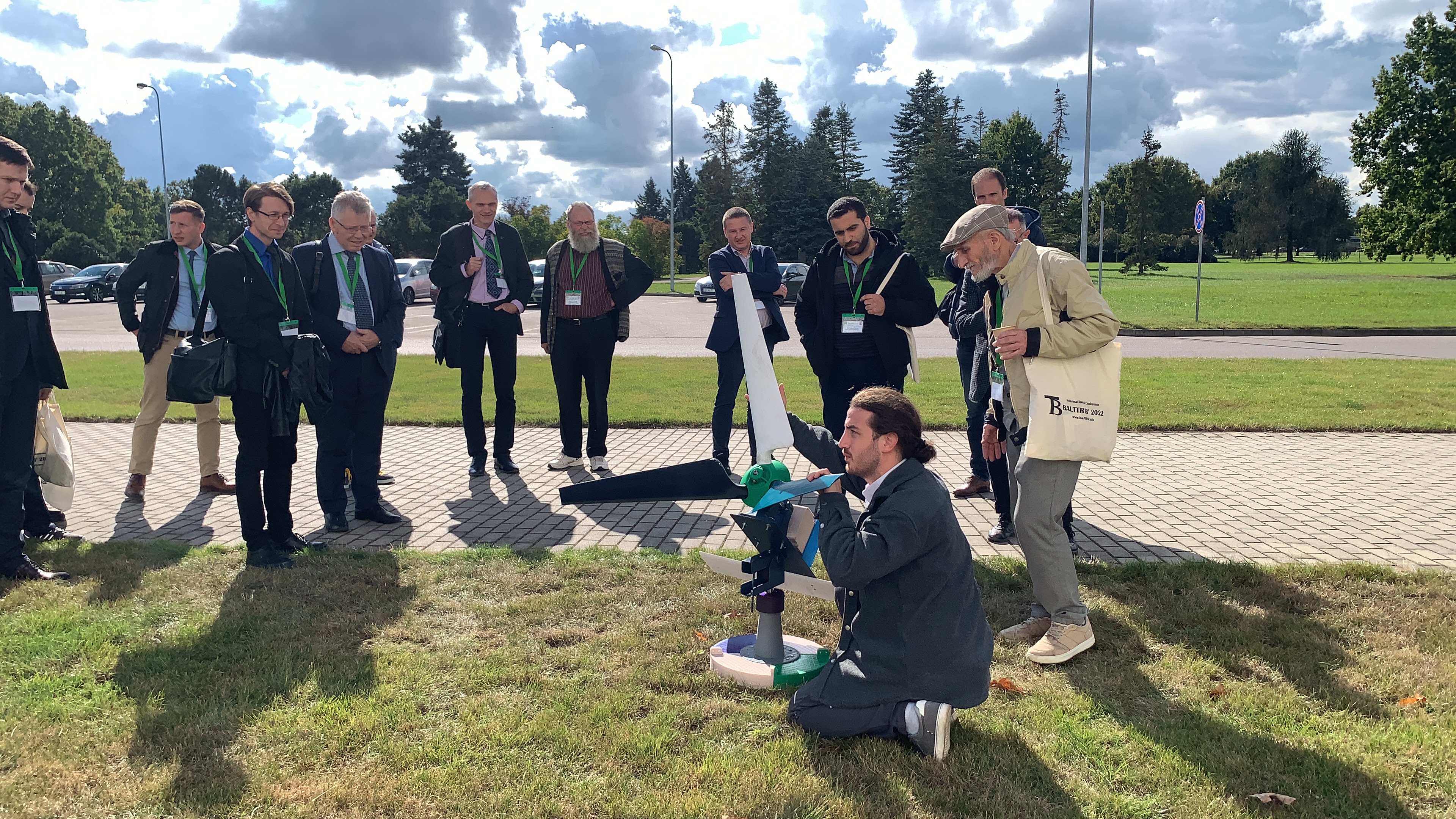INTRODUCTION

Four years ago, our team was awarded a four-year, 550,000 GEL research grant from
the Shota Rustaveli National Science Foundation of Georgia
for an innovative conical wind turbine with inclined axis. The goal was to develop,
research, improve and prepare innovative wind turbine for the market.
After four years, in the final moments of the grant, we want to share our journey
and what we have achieved.
ADVANTAGES
For introduction purposes, let me briefly discuss the general advantages of the widely available and popular types of renewable energy hardware: wind turbines.
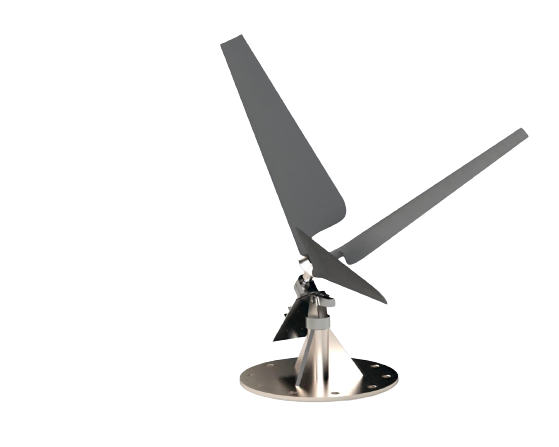
Reducing Dependence on Imported Organic Fuels
Using wind energy has proven to make a big impact on reducing dependence on imported fossil fuels. Making this impact more significant and consistent can help the environment in the long run.
Increasing the level of energy security
The International Energy Agency (IEA) defines energy security as the uninterrupted availability of energy sources at an affordable price. Wind turbines, for instance, tend to increase the level of energy security, which is one of the reasons why renewable energies are becoming increasingly popular.
Competitive price
The installation and maintenance of wind turbines has proven to be much cheaper than that of other renewable energy sources.
Disadvantages
Let me also briefly explain the main disadvantages of common wind turbines.
Large area required
To generate enough energy, wind power stations need an expansive space to be set up.
Threat to birds
Unfortunately, wind turbines can be dangerous for migratory birds as the blade’s impact may cause them fatal injury. This is a major risk to those species who have become victims to the blades of large turbines.
Vibration and Noise.
Placement of wind turbines in populated areas is discouraged due to the negative effects they can have on the psychological well-being of citizens. This is caused by the vibration and noise created during their operation, which has been substantiated in research studies.

COMPARISON
After understanding the pros and cons of wind energy, let me explain the difference between
different types of wind turbines.
Mainly, there are two distinct kinds of wind turbines out there: Horizontal-Axis
Wind Turbines (HAWT) and Vertical-Axis Wind Turbines (VAWT). The former has a
horizontal axis, hence its name. On the other hand, the latter has a vertical axis
- thus being called VAWT.
Both HAWT and VAWT have their own sets of supporters, but let us take a closer
look at how they differ from each other.
HAWT (Horizontal-axis Wind Turbine)
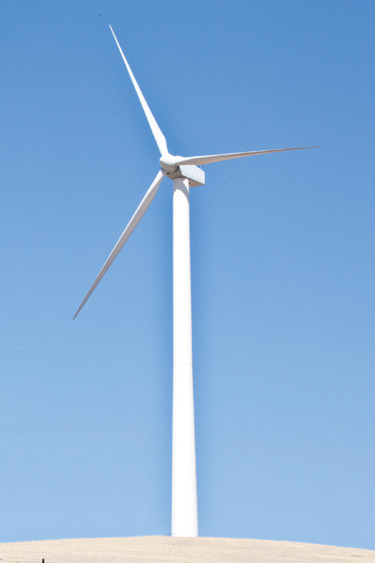
VAWT (Vertical-axis Wind Turbine)
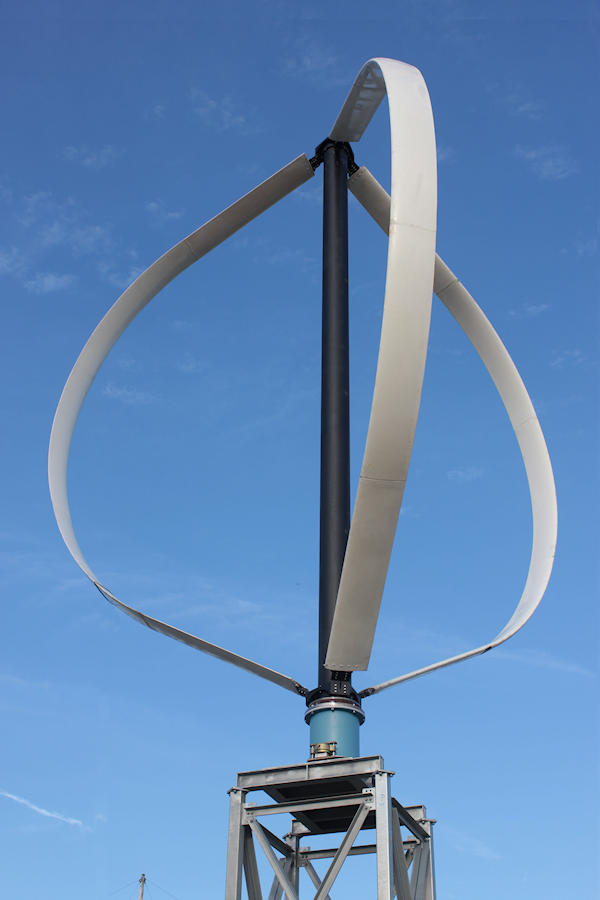
Axis of Rotation
For the horizontal axis wind turbine, the axis of rotation of turbine is parallel to the wind stream.
Self-starting
Horizontal axis wind turbine is self-starting.
Cost
Horizontal axis wind turbines are more expensive due their complex design and installation.
Axis of Rotation
For the vertical axis wind turbine, the axis of rotation of the turbine is perpendicular to the wind stream.
Self-starting
Vertical axis wind turbine is not self-starting, hence a starting mechanism is required to start it from stationary position.
Cost
Vertical axis wind turbines are less expensive because their design and installation is quite simple.
Brief History of DAWT
In 2018, we were fortunate to receive funding from the Shota Rustaveli National Science Foundation of
Georgia for a unique inclined-axis wind turbine. This grant provided us with valuable
resources to continue our research and develop this innovative technology.
During the grant period, we conducted experiments that were previously simulated on computers.
The models for wind turbines were made from various metals except for the blades which
were 3D printed as their design was complex.
We adopted a proprietary 3D printing process to manufacture our parts, which have been
tested to be very robust. Consequently, we shifted the majority of component fabrication
to 3D printing. Our focus now is on making DAWTONE up to 90% 3D-printed.
In December 2022, almost by the end of the grant duration, we discovered that
DAWTONE is far superior to its competitor HAWT.
Simulations
We've conducted various simulations. firstly for picking the best airfoil for the blades.
We created proprietary airfoil.
Then the attack angle of the blade was to be determined.
Then the structure of the aerodynamical mile which we later assembled.
Data Acquisition from Small Model
Meanwhile, we 3D printed a small model of DAWTONE for data acquisition. Data acquisition was done using
own software and hardware solution. View the video for more info.
EXPERIMENTS
This video shows field test of DAWTONE, with 3D printed blades. This is the 2nd functional
prototype of DAWTONE.
3D PRINTING
Almost all parts are 3D printed. 3D printing of blades because of special profile.
Firstly, seperately and then assembled and after than monolithically.
Gearbox is also 3d printed, to make experiments easier, when we needed shifting between
different ratios.
Hub was 3D printed due to the complex design, as no
other options were available to create such a structure.
EXPERIMENTS
This is video of DAWTONE Experiment conducted on 31st December 2021, with and without
1:3 Gearbox.
IN LITHUANIA
These videos are taken in Adacemia, Lithuania in September 2022. DAWTONE amazed everyone with easy
installation process and the ability to start rotation at low wind speed.
FINAL EXPERIMENT
This is a video of DAWTONE comparison experiment conducted on 22nd December 2022, in Aerodynamic tunnel. We have compared DAWTONE to HAWT.
Conclusion
გრანტის 4 წლიანი მიმდინარეობის პერიოდში დახრილ-ღერძიანი კონუსური ქარძრავა გარდაიქმნა დიაგონალურ-ღერძიან ქარძრავად - DAWT-ად და ახალი
სიტყვა თქვა განახლებად ენერგიებში.
Throughout the grant.
4 წელიწადში შევძელით:
- 1. შევქმენით პირველი 3D ნაბეჭდი ქარძრავა
- 2. მონაწილეობა მივიღეთ 15-ზე მეტ საერთაშორისო კონფერენციაზე
- 3. გამოვაქვეყნეთ 15-ზე მეტი სტატია
- 4. დავაინტერესეთ 150-მდე პოტენციური მომხმარებელი
Contact DAWTONE
Any question? Reach out to us and we’ll get back to you shortly.
-
+995 558 658 612
-
info@dawtone.com



